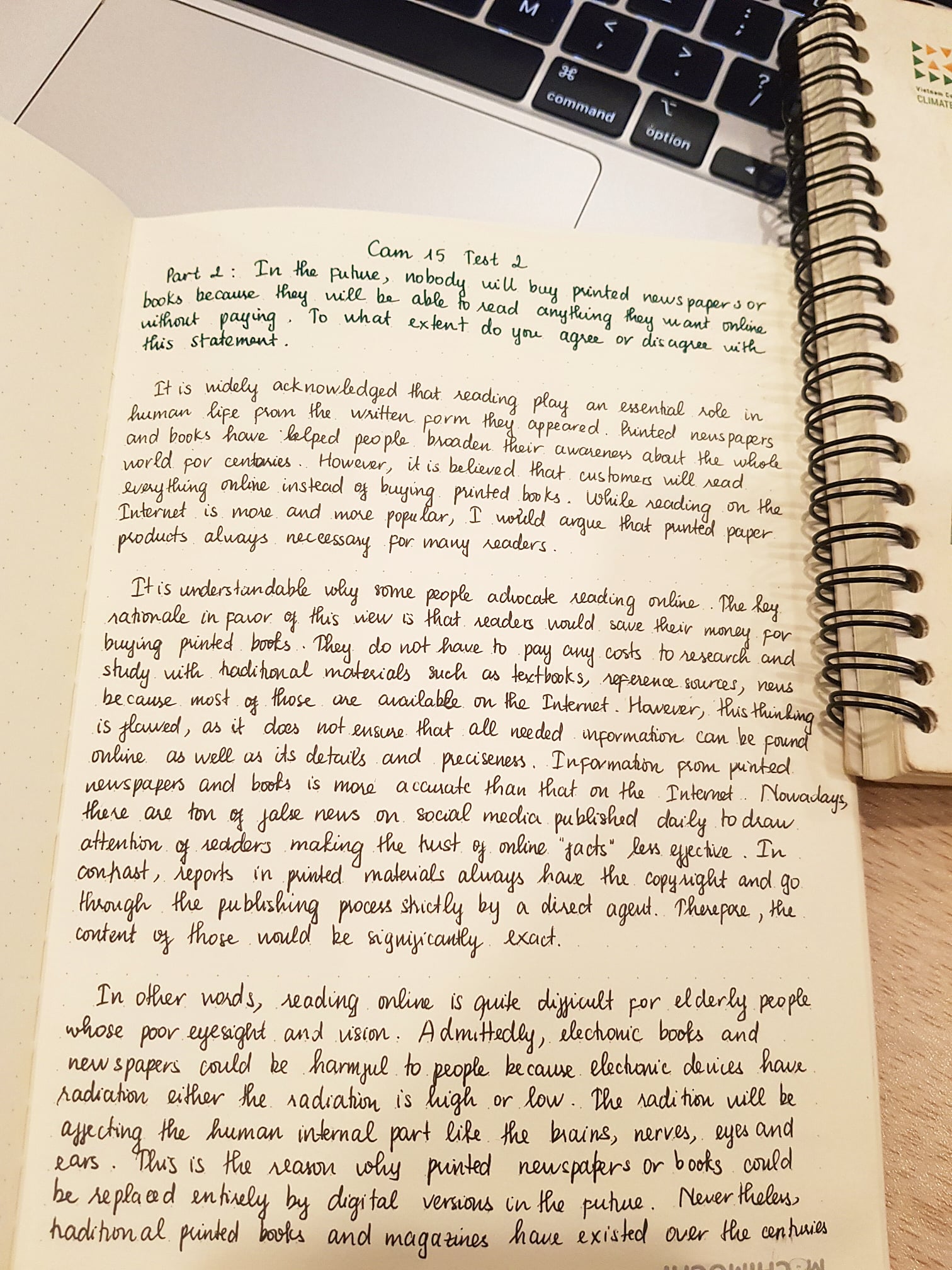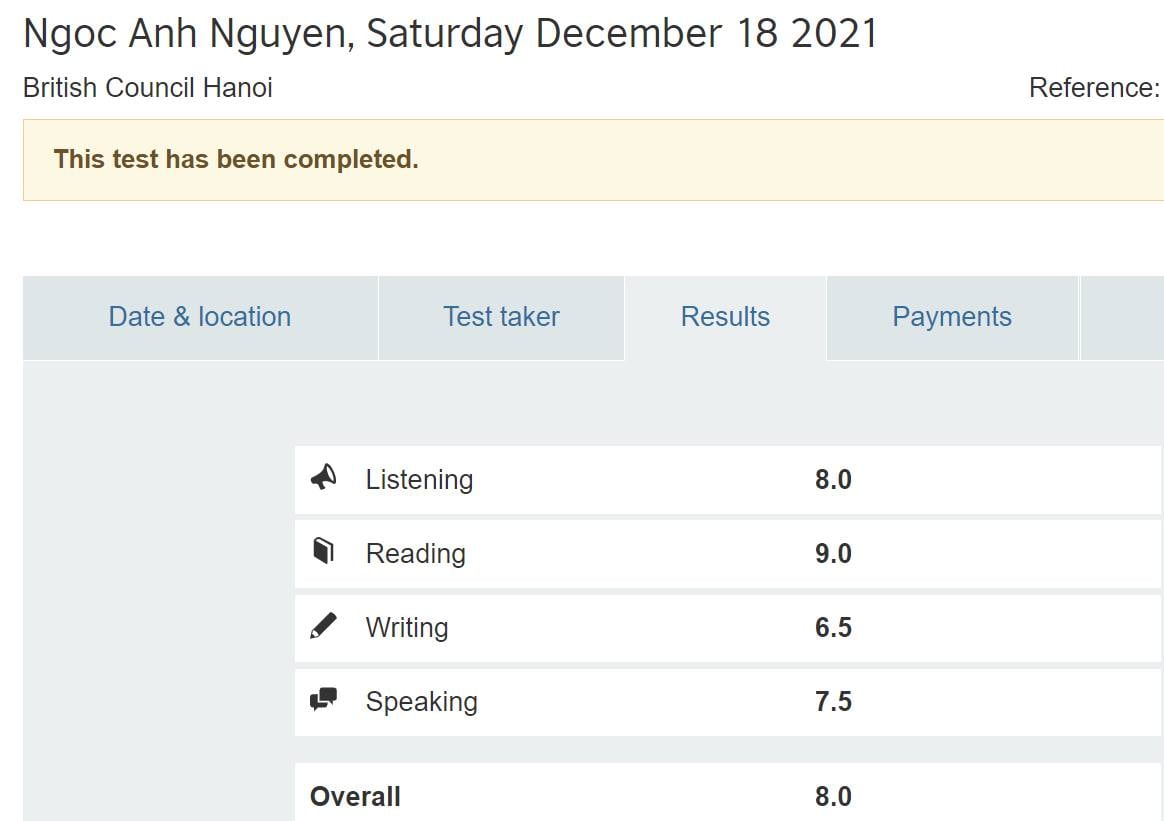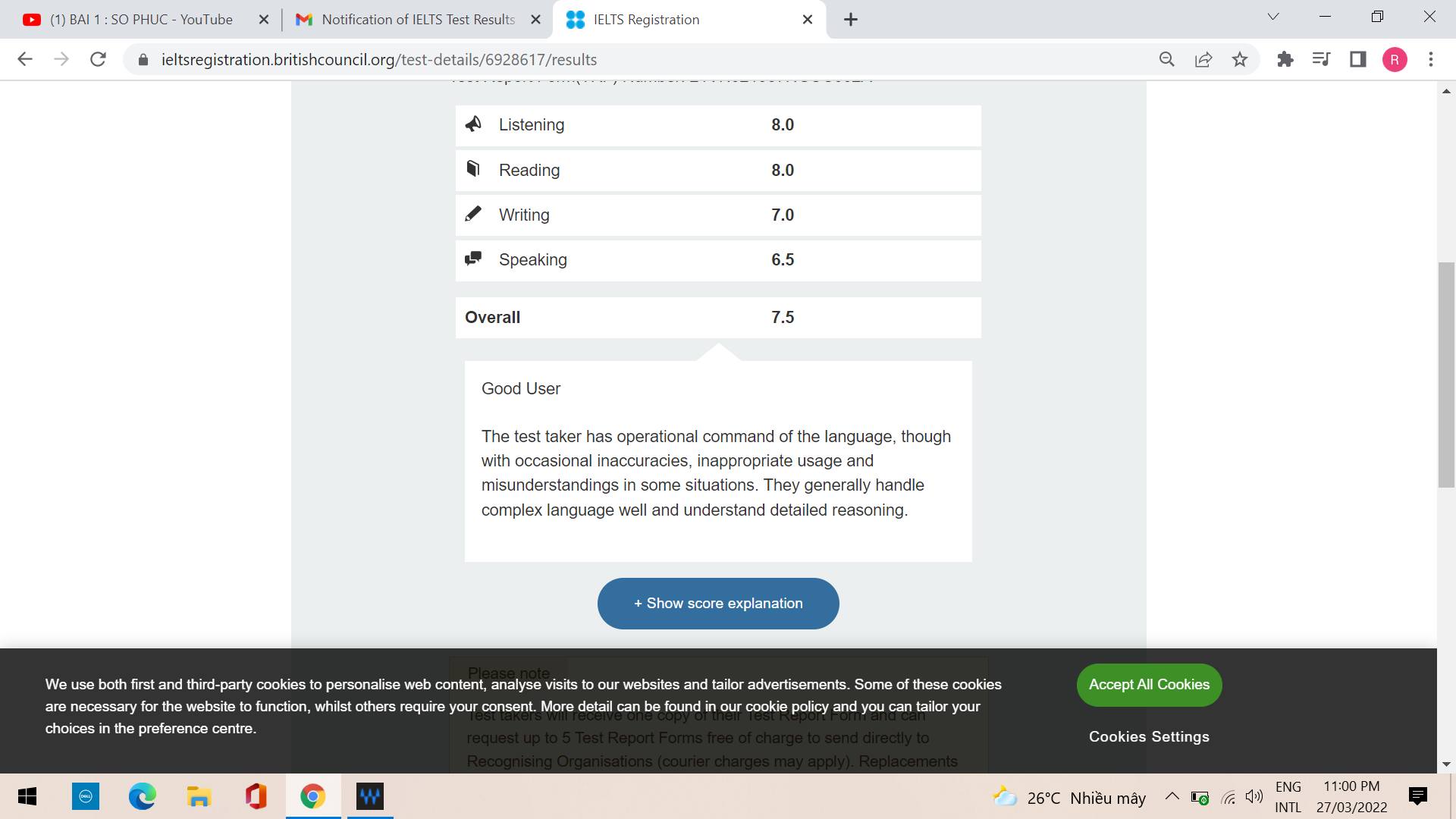I. REVIEW
Khi làm bài tập dạng câu hỏi Short Answer, chúng ta cần chú ý các điểm sau:
– Giới hạn số lượng từ cho mỗi đáp án
– Câu trả lời sẽ xuất hiện theo đúng trật tự bài đọc
– Xác định đáp án là loại từ nào (Noun/Verb/Adjective/Adverb)
– Lưu ý câu trả lời không nhất thiết phải đúng ngữ pháp, chỉ cần đúng ý
– Bắt key word trong câu hỏi, tìm synonyms hoặc paraphrase key words
II. FULL PASSAGE
BENEATH THE CANOPY
1. The world’s tropical rainforests comprise some 6% of the Earth’s land area and contain more than half of all known life forms, or a conservative estimate of about 30 million species of plants and animals. Some experts estimate there could be two or even three times as many species hidden within these complex and fast- disappearing ecosystems; scientists will probably never know for certain, so vast is the amount of study required.
2. Time is running out for biological research. Commercial development is responsible for the loss of about 17 million hectares of virgin rainforest each year – a figure approximating 1% of what remains of the world’s rainforests.
3. The current devastation of once impenetrable rainforest is of particular concern because, although new tree growth may in time repopulate felled areas, the biologically diverse storehouse of flora and fauna is gone forever. Losing this bountiful inheritance, which took millions of years to reach its present highly evolved state,
would be an unparalleled act of human stupidity.
4. Chemical compounds that might be extracted from yet-to-be-discovered species hidden beneath the tree canopy could assist in the treatment of disease or help to control fertility. Conservationists point out that important medical discoveries have already been made from material found in tropical rainforests. The drug aspirin, now synthesised, was originally found in the bark of a rainforest tree. Two of the most potent anti- cancer drugs derive from the rosy periwinkle discovered in the 1950s in the tropical rainforests of Madagascar.
5. The rewards of discovery are potentially enormous, yet the outlook is bleak. Timber-rich countries mired in debt, view potential financial gain decades into the future as less attractive than short-term profit from logging. Cataloguing species and analysing newly-found substances takes time and money, both of which are in short supply.
6. The developed world takes every opportunity to lecture countries which are the guardians of rainforest . Rich nations exhort them to preserve and care for what is left, ignoring the fact that their wealth was in large part due to the exploitation of their own natural world.
7. It is often forgotten that forests once covered most of Europe. Large tracts of forest were destroyed over the centuries for the same reason that the remaining rainforests are now being felled – timber. As well as providing material for housing, it enabled wealthy nations to build large navies and shipping fleets with which to continue their plunder of the world’s resources.
8. Besides, it is not clear that developing countries would necessarily benefit financially from extended bioprospecting of their rainforests. Pharmaceutical companies make huge profits from the sale of drugs with little return to the country in which an original discovery was made.
9. Also, cataloguing tropical biodiversity involves much more than a search for medically useful and therefore commercially viable drugs. Painstaking biological fieldwork helps to build immense databases of genetic, chemical and behavioural information that will be of benefit only to those countries developed enough to use them.
10. Reckless logging itself is not the only danger to rainforests. Fires lit to clear land for further logging and for housing and agricultural development played havoc in the late 1990s in the forests of Borneo. Massive clouds of smoke from burning forest fires swept across the southernmost countries of South-East Asia choking cities and reminding even the most resolute advocates of rainforest clearing of the swiftness of nature’s retribution.
11. Nor are the dangers entirely to the rainforests themselves. Until very recently, so-called “lost” tribes – indigenous peoples who have had no contact with the outside world – still existed deep within certain rainforests. It is now unlikely that there are any more truly lost tribes. Contact with the modern world inevitably brings with it exploitation, loss of traditional culture, and, in an alarming number of instances, complete obliteration.
12. Forest-dwellers who have managed to live in harmony with their environment have much to teach us of life beneath the tree canopy. If we do not listen, the impact will be on the entire human race. Loss of biodiversity, coupled with climate change and ecological destruction will have profound and lasting consequences.
| Questions 1 – 3 You are advised to spend about 4 minutes on Questions 1-3 Look at Questions 1 – 3 below. Write your answers in boxes 1 – 3 on your Answer Sheet. |
Q1. How many medical drug discoveries does the article mention?
Q2. What two shortages are given as the reason for the writer’s pessimistic outlook?
Q3. Who will most likely benefit from the bioprospecting of developing countries’ rainforests?
III. DISCUSSIONS
Bây giờ chúng ta cùng nhau tư duy và chọn đáp án đúng các em nhé:
(1) Đáp án là một con số. Bài đọc có thể cho đáp án trực tiếp ở dạng số hoặc dạng chữ. Tuy nhiên, cũng có thể người đọc phải đếm các loại medicine drug được nhắc đến trong bài. Các đáp án được kỳ vọng đi cùng từ khóa “discoveries” hoặc synonyms của từ này.
–>> The drug aspirin, now synthesised, was originally found in the bark of a rainforest tree. Two of the most potent anti- cancer drugs derive from the rosy periwinkle discovered in the 1950s in the tropical rainforests of Madagascar.
–>> Đáp án: Three
(2) Cần tìm hai đáp án là hai danh từ. Đi chung với các từ khóa “shortage”, “pessimistic outlook”. Tuy nhiên, có thể trong bài đã paraphrases các key words này.
–>> The rewards of discovery are potentially enormous, yet the outlook is bleak. ………………takes time and money, both of which are in short supply.
–>> Đáp án: Time and money
(3) Đáp án cần tìm là danh từ, tổ chức hoặc cá nhân. Gắn với các từ khóa như “benefit” “bioprospecting”
–>> Besides, it is not clear that developing countries would necessarily benefit financially from extended bioprospecting of their rainforests. Pharmaceutical companies make huge profits from……….
–>> Đáp án: Pharmaceutical companies
Short Answer Questions không phải là một phần khó. Quan trọng nhất đối với dạng bài tập này là khả năng bắt keyword trong câu hỏi và tìm synonym/paraphrase của keyword đó. Vì thế khi học từ các bạn chú ý luyện tập paraphrase hoặc tìm synonym của từ vừa học nhé. Bên cạnh đó, chúng mình cũng nên quan tâm đến số lượng từ được cho phép trong một đáp án nữa nhé.
Chúc các bạn học tốt <3



